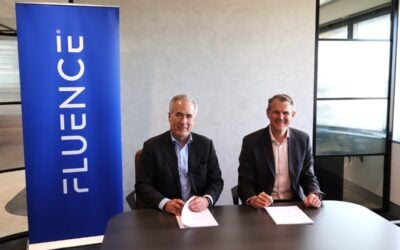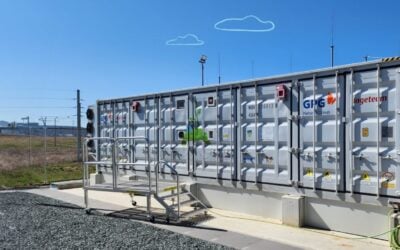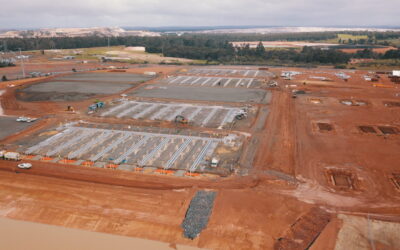The report calls for significant overhaul of energy policy and regulatory frameworks. Recommendations include include finding “a sweet spot” for charging generators to connect to the distribution network and the removal of transmission system operator responsibilities from National Grid. Image: The Smallpiece Trust.
A wide-ranging report from UK politicians into the country’s energy system has found that policy has moved at “glacial pace” to adapt to energy storage technologies and urged for faster action.
The energy and climate change (ECC) select committee, a cross-party group of members of parliament (MPs) released its latest report on 17 June, which criticises both the government over its slow pace in developing energy policy and the current organisation of the UK’s grid infrastructure.
Enjoy 12 months of exclusive analysis
- Regular insight and analysis of the industry’s biggest developments
- In-depth interviews with the industry’s leading figures
- Annual digital subscription to the PV Tech Power journal
- Discounts on Solar Media’s portfolio of events, in-person and virtual
The report called for significant and wide-ranging changes to the UK’s grid governance and policy landscape if the country is to transition towards low carbon network infrastructure.
It judged that while developing low carbon electricity is key to the UK’s decarbonisation ambitions, the current charging regime is not fit for purpose when addressing the “astounding” rise in new connection requests, particularly on distribution networks.
Using solar as an example, the report states: “The UK’s installed solar capacity is approaching levels previously expected by 2030, stacking pressure on regional distribution networks. There is a need for better integration of connection and planning-consent processes.”
Britain is confronted with an energy ‘trilemma’ – the triple threat of needing to keep the lights on, at lowest cost to consumers and with the lowest carbon technologies available. At the Energy Storage Summit held at the end of April by Energy-Storage.News’ publisher Solar Media, Dr Roberto Moreira explained in a video interview that energy storage is almost unique as a set of technologies that meets the three points of this trilemma head-on.
Energy storage and the UK ‘trilemma’ – Dr Roberto Moreira, Imperial College London
Call for regulatory definition and faster movement
Suggested measures include better coordination of smart meter rollouts, more demand response programmes and perhaps most significantly, a reorganisation of grid infrastructure and the way the electricity market is structured with a single transmission system operator, National Grid, a handful of distribution network operators (DNOs) and utilities and generators all overseen at a national level. Solar Media’s UK site Solar Power Portal reported on the select committee’s recommendations in full yesterday, including its condemnation of overarching government policy and a reiteration that efforts need to be made to enable a smoother transition to a decentralised, low carbon energy network. The report also discussed the idea of changing the role of DNOs to distribution platform operators, with similar moves taking place in California and New York.
Overcoming regulatory barriers to storage is a dominant theme in the report, with the need for the technology to no longer be classed as a generator of significant importance. Its current status means storage is liable for balancing charges, which they are charged twice – once for ‘consuming’ the electricity they store, then for supplying it back to the grid – costing UK storage approximately £14.9 million (US$22 million) annually. They are also double-charged the Climate Change Levy (CCL), all of which the select committee believes shouldn’t be applied at all.
The report’s recommendations also included creating a new asset class for energy storage. As regulatory definitions predate recent falls in the costs of batteries and other storage as well as the recognition of technological advancements that enable storage to serve a greater role in the network than before. However, the report adds that the government must first make its position on storage known. Several British government ministers have recognised the potential of storage in words, but the country’s regulator Ofgem and government Department of Energy and Climate Change (DECC) have both said they are preparing public and industry consultations later this year to formulate and official stance.
The select committee report states: “The current regulatory conditions for storage are hindering its development. We welcome the government’s consultative approach to this matter, but hope it will proceed with a sense of urgency. We urge the Government to publish its plans, as soon as possible, for exempting storage installations from balancing charges, and from all double-charging of network charges.”
An engineer from one of the UK’s DNOs, innovation and low carbon networks engineer Faithful Chanda, told Energy-Storage.News about some of the challenges posed by increasing amounts of solar and wind and how energy storage could be a good fit to tackle many of the network’s problems, in another video interview also taken at the Energy Storage Summit.
UK DNO Western Power Distribution’s Faithful Chanda – the growing need for flexibility resources
“
“If you go back to the history of generation, renewable generation came on stream from about 1996. We have seen a very steady rise in applications. The electricity system was built for a certain period, and no real period of adding new infrastructure has happened…Whilst the system has stayed the same, we’ve seen a big rise in wind generation, solar power plants – but the original system has remained the same…The mechanics and dynamics of operating has remained the same and so we also need to change in line with that.”
Additional reporting by David Pratt.






